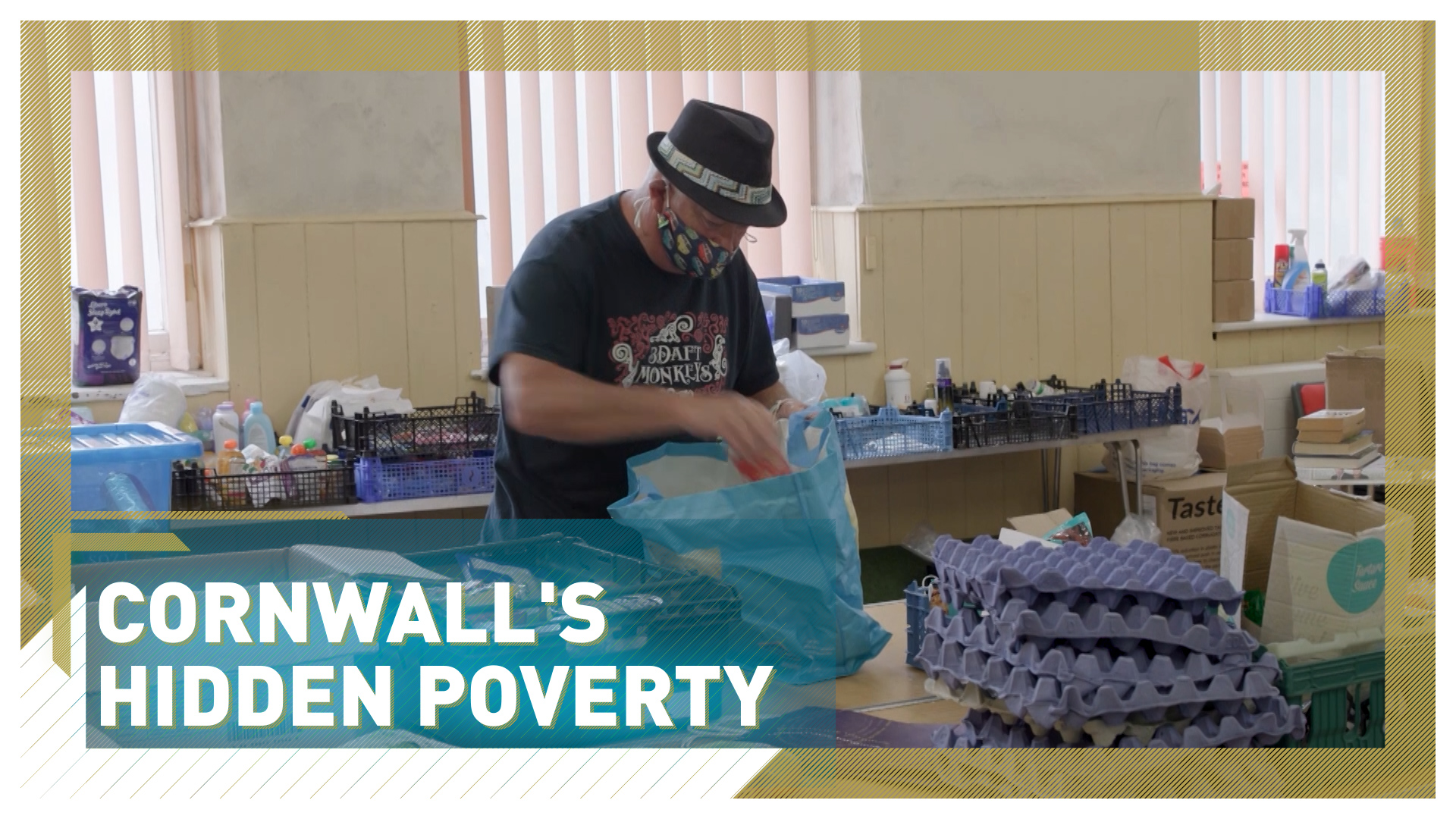02:59

With its warm micro-climate, rugged coastline, and picturesque towns and villages, Cornwall has long been a popular holiday destination. It has a booming property market, including second homes. Yet this county, in the far southwest of England, also ranks as one of the most deprived areas of Britain.
St. Ives is the jewel in Cornwall's crown. A former artists' colony, today it boasts world-famous art galleries along with its beaches and fine restaurants and was where Boris Johnson chose to host the G7 leaders summit earlier this year.
Behind the scenes, though, an estimated third of children in St. Ives are living in poverty. Chris Wallace has been running a food bank here for the past decade, and the problem is getting worse.
READ MORE
David Amess murder: What we know so far
Being the world's tallest woman
China and UK preserve plant diversity
Demand jumped fourfold after the pandemic started and has stayed at that rate ever since, apart from Christmas when it went up tenfold.
"The problem is that the image of St Ives gives everyone the idea that everyone is rich," Wallace said.
"A lot of it is health issues, a number of our clients have long term health issues, and the other problem is the cost of living in St Ives. Even if you are in work, you can't afford the rent or the heating. It's that age old choice of do I heat or eat."

The beach front in St. Ives, Cornwall is a popular destination with holidaymakers. /Michael Voss/CGTN Europe
The beach front in St. Ives, Cornwall is a popular destination with holidaymakers. /Michael Voss/CGTN Europe
In work and still poor
According to Andrew Howell, who set up the charity End Hunger Cornwall, the latest figures for this year suggest that two out of every three people that use Cornwall's main food banks are in work.
"They have a job and they still can't afford to feed their families," he said.
Now there are fears that with the recent reduction in state benefits, poverty could worsen, not just in Cornwall but throughout the country. Research from the Legatum Institute warns that over 800,000 people risk being pushed into poverty due to a cut to universal credit.

A food bank in Cornwall. /Michael Voss/CGTN EUROPE
A food bank in Cornwall. /Michael Voss/CGTN EUROPE
Joe, who asked not to give her surname, is a regular visitor to food banks. Like many, her husband is working but on minimum wage.
"Life's a struggle at the moment. I think the way the world is, everybody needs a little bit of help sometimes. I'm not ashamed. Benefits aren't great, and by the time you've paid your bills, there's nothing left. You still have got to pay your gas, your electricity, your water, everything that goes with a property," Joe said.
She admits it can be degrading at times, having to seek help but said she wasn't ashamed of it as she had been homeless in the past.
Cornwall's property boom
In some ways, Cornwall has become a victim of its own success.
One of the major problems here is property prices. So many people want to move to Cornwall or buy second homes that prices have shot up. While landlords have discovered, they can make more money with short-term holiday lets.
In St. Ives, a two-bedroom terraced former fisherman's cottage is on the market for around $1.3 million. There are thousands of short-term properties available on Airbnb, but very few affordable long-term rents on offer.
With the housing shortages, homelessness is a growing problem. Some local authorities are providing small single-room portacabin pods for people. The ones we saw were tucked away at the back of an industrial park. St. Ives is also providing temporary housing in a caravan park several kilometers outside of town. Critics say it's a matter of 'out of sight, out of mind.'

Many residents are forced to live in caravans because property prices have been inflated by the holiday market. /Michael Voss/CGTN EUROPE
Many residents are forced to live in caravans because property prices have been inflated by the holiday market. /Michael Voss/CGTN EUROPE
The second poorest region in northern Europe
When Britain was still in the European Union (EU), Cornwall was the largest recipient of EU funds in the country and was ranked as the second poorest region in the whole of northern Europe. While the Government proposed Shared Prosperity Fund to replace the EU money is not due to take effect until next year at the earliest.
According to official Government figures, 17 of Cornwall's districts rank among the country's 10 percent most deprived areas.
There are bleak housing estates away from the tourist spots where many can't find work or have seasonal low-wage jobs in the tourist industry.
Industry has gone
Cornwall didn't always rely on tourism. The county is littered with the remains of old tin and copper mines. The last one closed almost 25 years ago.
According to Andrew Howell of End Hunger Cornwall, mining was the area's heartbeat making it one of the wealthiest areas in the world.
"We have no industry anymore of any note whatsoever," Howell said.
"We hear all the time about the highway, the high skill economy that's being brought to Cornwall. But if they do bring a company down with high wages and high skills, they tend to bring a lot of their talent with them."
Moves to ban second homes
St. Ives and several other towns have banned developers from selling new properties as second homes, but critics say it has simply moved the problem onto areas without the ban.
Now they are hoping that new national planning regulations being considered could enable the whole county to extend the ban and insist developers create more starter homes.

